2022 Seed Grant Awardees Abstracts
Ariana Ávila
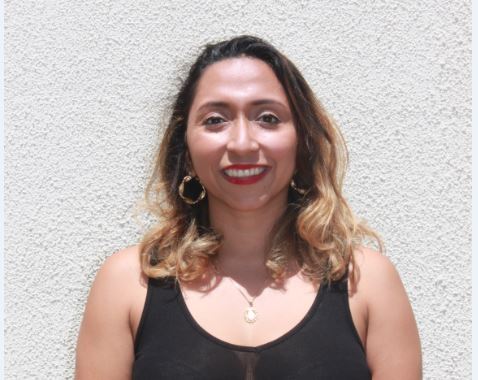 Department of Anthropology
Department of Anthropology
Current literature on food insecurity among farmworkers focuses on the lack of access to food. Although farmworkers in Southwest Florida face similar challenges, this research project considers how farmworkers and their families create and sustain food care networks to address food injustices. Considering farmworkers in the town of interest are primarily from Haiti, Mexico, and Guatemala, it is imperative to analyze migration to Southwest Florida. As this engaged project continues to develop, I hope to expand and grow on the following questions: 1) how farmworkers and their families enable networks of (food) care and 2) how U.S. immigration policies impact access to food assistance. The support received from the 2022 GCPR Seed Grant will allow me to fortify the research questions with the food/health interests of community members and to continue building community relationships.
Deanne Corin
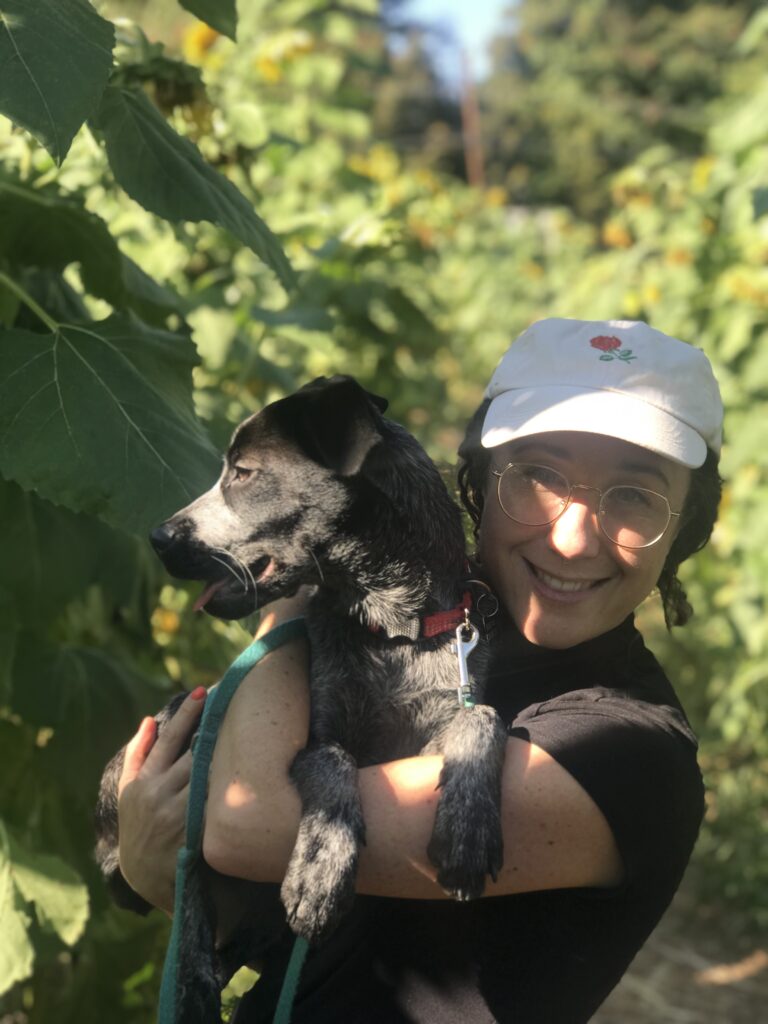
Department of Geography
This project analyzes the complexities of emergency food assistance in mitigating food insecurity and injustice in Durham, NC, alongside community food equity organizers’ articulated desires toward food systems change. Food insecurity is an ongoing issue in Durham, and the number of people served by Durham County’s food pantries have increased due to the ongoing impacts of COVID-19 and the rapid increase in the cost of living in this gentrifying city. Pantries play a crucial role in urban food landscapes, while acting in the systems that help to produce food insecurity to begin with. Attending to this tension, this project aims to analyze the embodied, institutional, and temporal relationships at play between food pantries, food justice, and local food systems. This study will offer important insight into efforts of local food systems change alongside responding to heightened food insecurity needs. In Summer 2022 I plan to utilize the GCPR Seed Grant Award to support a collaborative endeavor with Durham County’s Food Security Coordinator to conduct a Social Network Analysis (SNA).
Sarah Godoy
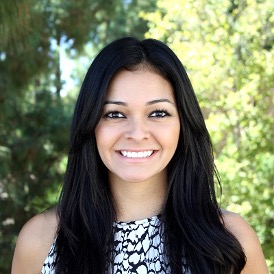 School of Social Work
School of Social Work
This study aims to develop and partner with a community expert and community advisory board to explore how adults with commercial sexual exploitation experiences that initiated in preadolescence: (a) define their experiences of exploitation; (b) perceive the vulnerabilities that increased their risk of exploitation; and (c) describe the protective factors that either did reduce their exploitation or that they believe might have helped had they been present. Together, the community expert and advisory board will provide guidance throughout the development of my dissertation proposal and subsequent research efforts focused on identifying risk and protective factors of commercial sexual exploitation among preadolescents. The GCPR grant will allow me to cultivate relationships and develop a community advisory board with survivor-led entities, service providers, and lived experience experts working to disrupt commercial sexual exploitation among preadolescent children.
Sophia Graybill
Department of Geography
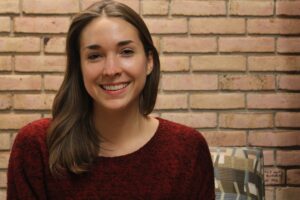
This study explores the relationship between labor migration and women’s involvement in Community Forestry in Nepal. Nepal is regarded as a pioneer of Community Forestry, a national community-based forestry management program intended to support both forest conservation and rural livelihoods. Literature suggests that Community Forestry in Nepal is often controlled by male social elites, however growing labor migration of men out of rural communities may expand opportunities for women to become more involved in forestry management and governance. I seek to partner with women community experts and local forestry organizations to explore a) how women understand and engage with forests; b) women’s perceptions of their roles and challenges in Community Forestry; and c) aspirations women may have for the future of forestry in their communities. The GCPR Seed Grant Award will support a preliminary trip to Nepal to allow me to develop collaborative relationships with women community experts as this research unfolds.
Ann Norinne Suk
Department of Anthropology
This project will explore the Bridge Builders (BB) program implemented by Refugee Community Partnership (RCP), a local organization that centers the priorities and experiences of refugees. The BB program, ongoing since 2012, matches volunteers with RCP families in reciprocal relationships. These relationships are intentional ones of mutual aid and long-term reciprocity, and are grounded in an awareness of power, oppression, and structural inequities. RCP member families define relationship goals. Prior to COVID-19, 230+ Bridge Builders worked with 520+ RCP members each year, mutually forging ties of solidarity and taking care of each other. While the program is a successful one, RCP is interested in further strengthening this initiative, with the goal of deepening the network of support available to the refugee community in Chapel Hill. This project responds to members’ stated preference for active, engaged relationships with their BB volunteers. RCP staff have noticed differences in the level of commitment of BB volunteers, prompting interest in learning more about the factors motivating volunteers’ involvement with RCP and in considering how RCP can further facilitate commitment in these intentional relationships.
Diane Slocum
Department of Anthropology
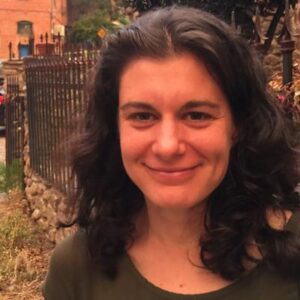 This project will gather oral histories in partnership with residents of Tahcabo, Yucatán, Mexico, to create a community-based archive focused on the history of the town’s center. The center of Tahcabo is an important gathering place for everyday activities and annual festivals. The town’s community museum is located in a municipal building in the community center, and visitors coming to the museum explore the surrounding sites. Sites of interest include a colonial church and a pre-contact religious shrine, as well as a modern-day church, bull-fighting ring, park, and basketball court. The colonial church is of particular interest to visitors and community members. During a visit to Tahcabo in December 2021, the head of the town’s Heritage Committee confirmed a continued interest among town residents in conserving and exploring the history of the colonial church. This oral history project will take place as part of an ongoing collaborative project, Proyecto Arqueológico Colaborativo del Oriente de Yucatán (PACOY). Prior to potential archaeological investigations or conservation efforts, this project seeks to begin the exploration of the history of the church and the surrounding center with community voices. This will better focus future research efforts and contribute to community perspectives presented in Tahcabo’s museum.
This project will gather oral histories in partnership with residents of Tahcabo, Yucatán, Mexico, to create a community-based archive focused on the history of the town’s center. The center of Tahcabo is an important gathering place for everyday activities and annual festivals. The town’s community museum is located in a municipal building in the community center, and visitors coming to the museum explore the surrounding sites. Sites of interest include a colonial church and a pre-contact religious shrine, as well as a modern-day church, bull-fighting ring, park, and basketball court. The colonial church is of particular interest to visitors and community members. During a visit to Tahcabo in December 2021, the head of the town’s Heritage Committee confirmed a continued interest among town residents in conserving and exploring the history of the colonial church. This oral history project will take place as part of an ongoing collaborative project, Proyecto Arqueológico Colaborativo del Oriente de Yucatán (PACOY). Prior to potential archaeological investigations or conservation efforts, this project seeks to begin the exploration of the history of the church and the surrounding center with community voices. This will better focus future research efforts and contribute to community perspectives presented in Tahcabo’s museum.